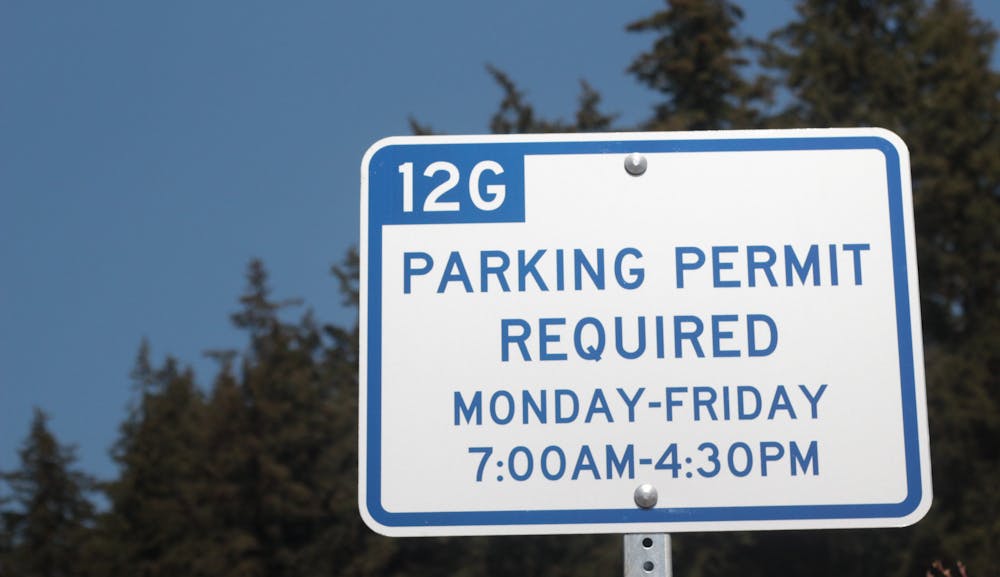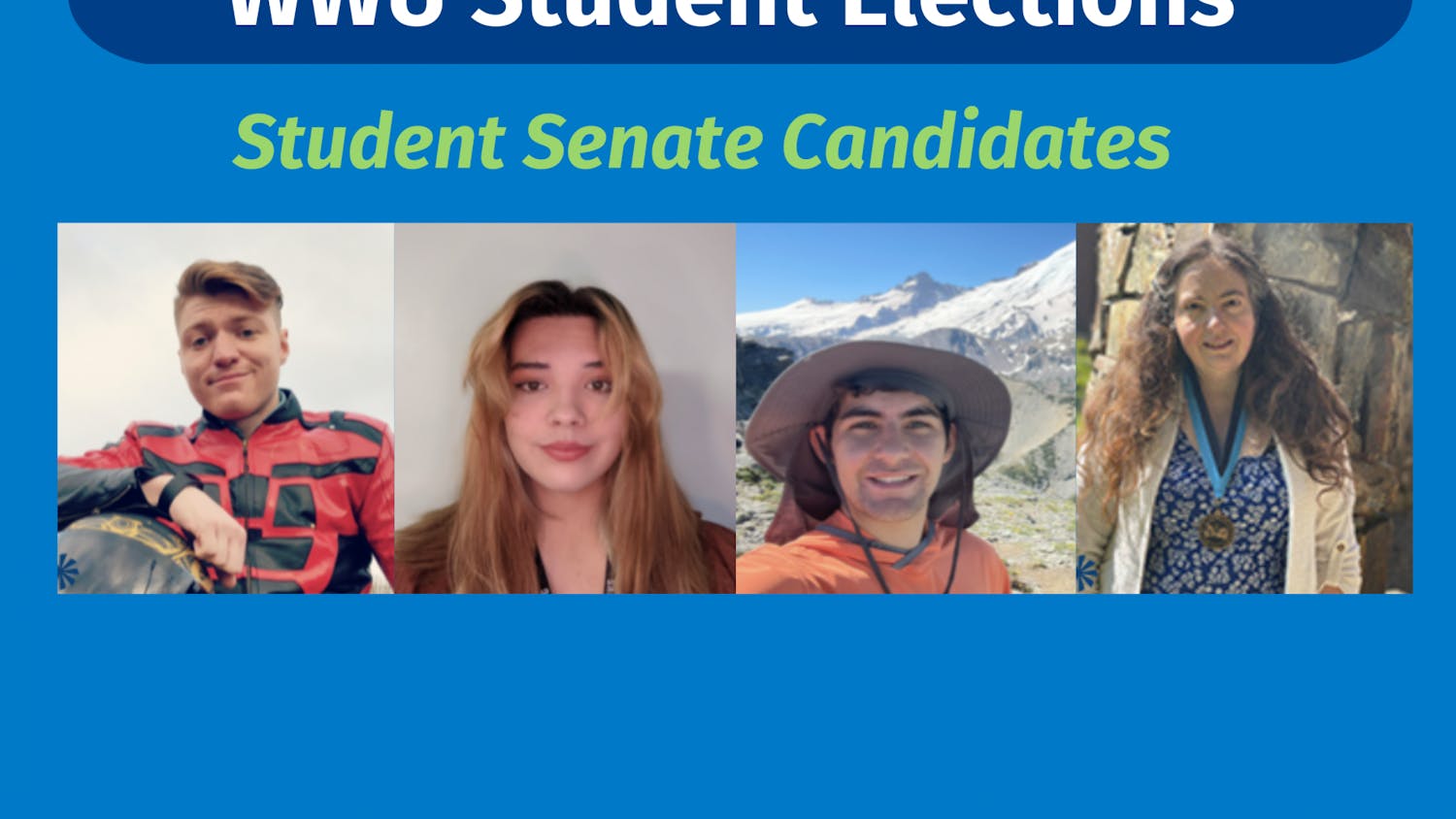11,367.
What does this number represent? Dollars? People? Cars?
No. That’s how many parking citations have been issued in Western Washington University parking lots since September 2022, according to Transportation Services. That number has risen from the 9,736 citations and warnings given between September 2021 and April 2022.
The influx of tickets being given to students on Western’s campus has made the parking struggle clearer than ever before, and it continues to be a point of conflict between institution officials and campus commuters.
One student finally decided enough is enough.
Fourth-year Western student Peter Edvalds is the president and founder of a new club on campus, the Anti-Parking Enforcement Club. Edvalds leads this club alongside his best friend and roommate Kyle Cuper, who is the vice president. The goal of the club is to build morale among students who have felt frustration due to the over-enforcement of already lacking parking spots and figure out how to develop connections between themselves and parking enforcement, in hopes of combating unnecessary parking tickets.
“The main purpose of the club is to create a civil discourse with the parking enforcement officers. … We wanted to do something about it, so we were like alright, let's start this club,” Edvalds said.
Edvalds mentioned his irritations about excessive parking tickets to his roommates about a month ago, and they supported his idea to start the club. The club is still in the beginning stages and currently consists of Edvalds and a few of his closest friends.
“Right now, we have about 30 people following the Instagram page who know about it, and then like, four people are signed up for the actual club,” he said. “It’s a lot tougher to get them to actually sign up for the club for some reason.”
High parking ticket prices are another primary focus for the APEC.
Blake Lyons, who is the director of planning and community development for the City of Bellingham, said ticket payment is often used as a way to motivate changes in transportation options and help pay back development costs on property projects.
“It becomes a question of who pays for it,” he said. “Do we subsidize through taxpayers or do we make whoever will be using [the parking] space [pay]?”
Third-year student Lexi Parkhurst is a member of the APEC. She named more inquiries the club would look into with parking enforcement officers once they surpass the set-up stage.
“Do they need this money? Where does the money they take from students go? If it goes to the parking enforcement officers, is the sole purpose of charging students for parking because they are providing jobs for parking enforcement?” she asked.
Like Parkhurst, Edvalds clued into the commonality of the experience between other students who have received tickets.
“I was pretty fed up with how ‘on it’ the parking enforcement was, like, do they have quotas or what?” he said.
Transportation Services Manager Shelby Zimmerman said the ratio of 15,000 students to only 3,800 parking spaces, not to mention staff and visitors who come to campus, make it so the lots cannot go unmanaged due to the high demand for parking.
“In general, parking citations are issued to vehicles blocking access to students and employees who have purchased a parking permit,” he said in an email. “Other situations when parking citations are issued include blocking access for emergency vehicles and disability parking spaces.”
The Transportation Services website gives fair warning of the university’s limited parking capacity, and permits are awarded to students based on the number of completed credits.
As the club grows, tickets are something Edvalds wishes to discuss with parking enforcement, to find out further reasons behind the frequent citations.
“I haven’t talked to the parking enforcement yet just because I want to have enough people involved in the club,” he said. “When I come to them I want them to take it seriously.”
Once the club is finished going through the process of getting approved by Western’s Board of Activities, Edvalds plans to hold monthly or bi-weekly meetings with members to discuss future projects. His main priority is to set up a student relief fund to help students pay off what they deem “unfair” parking tickets however they can — paying it in full if they can manage.
Zimmerman mentioned parking tickets that go unpaid after 60 days make their way to a collection agency.
Lyons suggested the institution could invest in easier ways to pay for parking on campus to help prevent students from getting tickets. He also mentioned technologies that now exist to send real-time information on parking spots, like the ParkMobile app, so students wouldn't need to estimate when the time they paid would run out.
“From a local government perspective, there are environmental impacts to having more students bring cars to campus and most [universities] want to minimize this, so having parking enforcement may help [prevent] that,” he said.
The risk of high rates could be enough for students to not want to bring a car on campus, which from an environmental standpoint helps promote optimal types of transit such as the bus system or walking. Zimmerman also recommends students take advantage of alternate forms of transportation.
The club hopes to create change and student action against the parking violations many receive throughout the school year.
Zimmerman said parking enforcement standards and policies have seen no change in the past two years.
However, more students seem to be recognizing a problem with the execution of how parking enforcement is dealing with certain parking errors.
“I joined this club because it seems like a mature way to handle frustration with the parking enforcement,” Parkhurst said. “Complaining about [it] does not make a difference, but doing something about it with a club that is backed by the school might make people start to listen.”
Edvalds said if anyone has ever felt any frustration about the parking situation at Western, that is a perfect reason to join the club.
APEC needs more club members before plans for action can move forward. Edvalds’ next steps include recruiting more Western students for the movement.
“I want students to join to kinda fight back,” Edvalds said. “The problem’s not gonna change unless someone stands up.”
Deven Meddaugh (she/her) is a sophomore and is a campus life reporter for The Front this quarter. She is an RA in the Edens-Higginson community and in her free time you can catch her hanging out with friends and family, playing Just Dance, re-watching her favorite movies/TV shows or writing.






